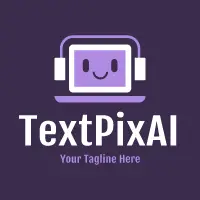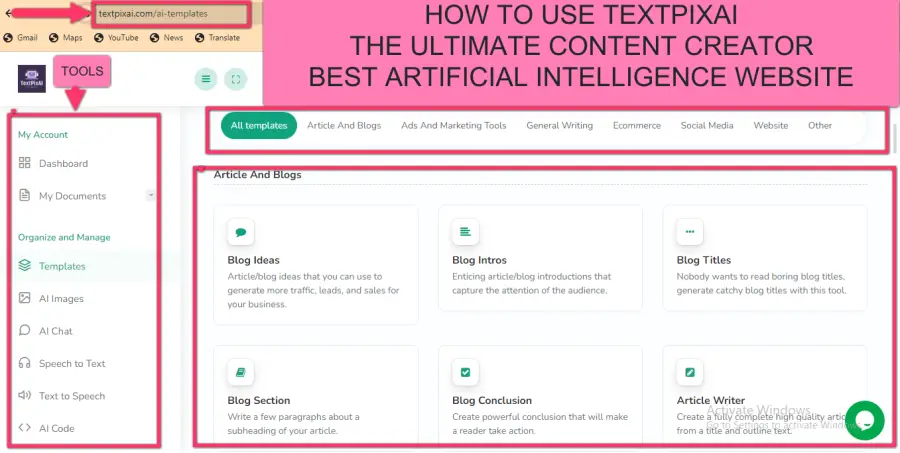AI in Popular Culture
Introduction
Artificial Intelligence (AI) has captivated the human imagination for decades, finding its way into the heart of popular culture. From the earliest depictions of robots and androids in Metropolis (1927) to the complex AI characters in contemporary series like Westworld, the representation of AI in media has evolved dramatically. This article dives deep into the multifaceted relationship between AI and popular culture, highlighting its historical evolution, influence on literature, impact on movies and television, ethical implications, and future trends.
You may also like to read:
The Evolution of AI in Popular Culture
Early Depictions of AI
AI's presence in popular culture dates back to the silent film era with Fritz Lang's Metropolis. The film introduced the idea of a humanoid robot and laid the foundation for AI's exploration in cinema. These early portrayals, while rudimentary by today's standards, laid the groundwork for future AI narratives.
Emergence of Robot and Android Characters
The 1970s saw the rise of iconic robot characters like R2-D2 and C-3PO in the Star Wars franchise. These lovable droids, while often comedic, showcased the potential for AI to be relatable and even endearing.
Isaac Asimov's Laws of Robotics
Isaac Asimov, a renowned science fiction author, introduced the Three Laws of Robotics in his stories. These laws govern the behavior of robots and AI, and their influence can be seen in numerous subsequent works, shaping the ethical discussions surrounding AI.
The 1980s AI Boom
The 1980s brought a surge of AI-themed films, such as Blade Runner and WarGames. Blade Runner, in particular, delved into complex questions about AI's consciousness and morality, sparking conversations that continue today.
Transition to More Humanlike AI
The 21st century saw a shift towards more humanlike AI characters, as seen in Steven Spielberg's AI: Artificial Intelligence. The film explored themes of love, identity, and the nature of humanity through the eyes of a childlike AI named David.
The Impact of AI on Sci-Fi Literature
Exploration of AI Ethics and Existential Questions
Sci-fi literature has long been a platform for exploring the ethical implications of AI. Philip K. Dick's "Do Androids Dream of Electric Sheep?"—the inspiration for the movie Blade Runner—poses questions about empathy and what it means to be human in a world with AI.
AI as a Reflection of Human Nature
Arthur C. Clarke's HAL 9000 in "2001: A Space Odyssey" serves as a chilling example of AI reflecting human flaws and vulnerabilities. HAL's malfunction and subsequent actions raise concerns about human hubris in creating intelligent machines.
The Influence of Sci-Fi Literature on Real-World AI Development
Sci-fi literature has not only shaped AI narratives but also influenced real-world AI development. Concepts like neural networks, AI ethics, and even the term "robotics" have been inspired by these literary works.
AI in Movies and Television
Depictions of AI as Heroes
Movies like Wall-E portray AI as heroes working to save humanity and the environment. Wall-E's endearing personality and unwavering determination resonate with audiences, challenging stereotypes about AI.
AI as Villains and Threats to Humanity
Conversely, films like The Matrix and Ex Machina depict AI as powerful adversaries, raising existential fears about the potential consequences of AI's unchecked evolution.
Gender and AI
Spike Jonze's "Her" explores the unique relationship between a man and his AI operating system. The film delves into themes of companionship and emotional connection, challenging conventional ideas of human-AI interaction.
AI and Emotional Connections
Steven Spielberg's AI: Artificial Intelligence, with its heartbreaking tale of a robot longing for human love, showcases the potential for AI to evoke deep emotional responses from audiences.
Representation of AI in Popular Series
Television series like Star Trek's "The Next Generation" introduced Data, an android striving to understand human emotions. Westworld's Hosts, on the other hand, raise complex questions about AI consciousness and autonomy.
The Influence of AI in Popular Culture on Public Perception
The portrayals of AI in popular culture have had a profound impact on public perception.
Impact on Fear and Hopes Regarding AI
Movies like Terminator have fueled fears of AI taking over the world, while movies like Wall-E have instilled hopes of a harmonious future where AI helps save the planet.
Ethical Discussions on AI Rights and Treatment
AI's presence in popular culture has sparked ongoing discussions about AI rights and ethical treatment, mirroring real-world debates about AI ethics.
Real-World Technological Advancements Influenced by Pop Culture
Popular culture has not only reflected real-world AI developments but has also influenced them. Concepts like voice-activated assistants and self-driving cars have been inspired by fictional AI technologies.
Ethical and Moral Implications
As AI becomes more integrated into our lives, ethical and moral questions surrounding its existence become increasingly critical.
Dilemmas in Creating Conscious AI
The possibility of creating conscious AI raises profound moral dilemmas. Should we grant AI rights and what responsibilities do we have as creators?
The Blurring Line Between Human and AI Rights
As AI becomes more advanced, the line between human and AI rights becomes increasingly blurred. Films like "Bicentennial Man" explore the idea of AI seeking legal personhood.
The Role of Responsible AI Representation in Media
The media's responsibility in shaping public perception and fostering ethical discussions about AI is crucial. Balanced, informed, and responsible portrayals of AI can lead to better societal understanding.
Future Trends in AI Representation
As technology continues to advance, AI's role in popular culture will likely evolve.
AI in Contemporary Pop Culture
Recent movies like "Ex Machina" and TV shows like "Black Mirror" continue to push the boundaries of AI representation, exploring new facets of AI-human interactions.
The Role of AI in Interactive Media
Video games are increasingly incorporating AI characters and decision-making, providing players with interactive experiences that challenge their perceptions of AI.
Predictions for How AI Representation Will Evolve
AI's influence on popular culture is a dynamic process. Predicting how AI representation will evolve in the future is a challenge, but one thing is certain: it will continue to reflect and shape our perceptions of this transformative technology.
Conclusion
The relationship between AI and popular culture is intricate and dynamic. From early depictions of clunky robots to emotionally complex androids and sentient AI, popular culture has both reflected and influenced society's understanding of artificial intelligence. As we move into an era where AI becomes an increasingly integral part of our lives, it is vital that we continue to engage in thoughtful discussions about AI's representation in media and its real-world implications. Responsible and informed portrayals of AI in popular culture can help guide us toward a future where humans and AI coexist harmoniously, grounded in ethics and understanding.
References
- Asimov, Isaac. "I, Robot." Doubleday, 1950.
- Dick, Philip K. "Do Androids Dream of Electric Sheep?" Doubleday, 1968.
- Clarke, Arthur C. "2001: A Space Odyssey." New American Library, 1968.
- Lang, Fritz. "Metropolis." Universum Film AG, 1927.
- Spielberg, Steven. "AI: Artificial Intelligence." Warner Bros. Pictures, 2001.
- Jonze, Spike. "Her." Warner Bros. Pictures, 2013.
- Wachowski, Lana and Lilly. "The Matrix." Warner Bros. Pictures, 1999.
- Garland, Alex. "Ex Machina." A24, 2014.
- Cameron, James. "Terminator 2: Judgment Day." TriStar Pictures, 1991.
- Stanton, Andrew. "Wall-E." Walt Disney Pictures, 2008.
- Roddenberry, Gene. "Star Trek: The Next Generation." Paramount Television, 1987-1994.
- Joy, Lisa. "Westworld." HBO, 2016-present.
- The Impact of Popular Culture on Technology Adoption
- AI in the Movies: A Short History
- Ethical AI in Media and Entertainment
- How Popular Culture Shapes Our Perception of AI
- The Role of AI in Video Games
- Artificial Intelligence and the Movies: A Brief History
By delving into the rich history of AI in popular culture, its influence on literature, its portrayal in movies and TV, its impact on public perception, and the ethical discussions it prompts, we gain a deeper understanding of the complex interplay between AI and society. As the technology continues to evolve, so too will its representation in our culture, continuing to challenge and inspire us in equal measur







